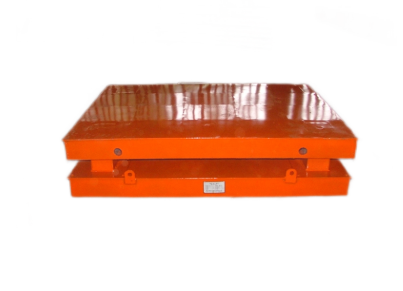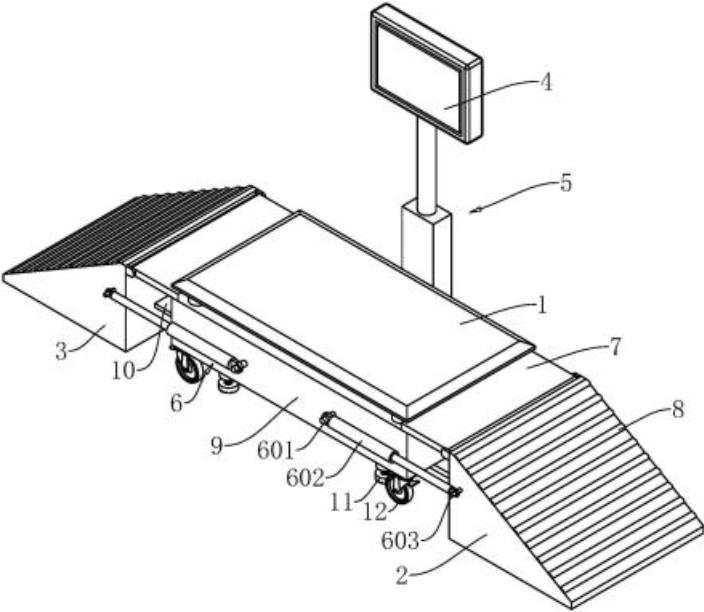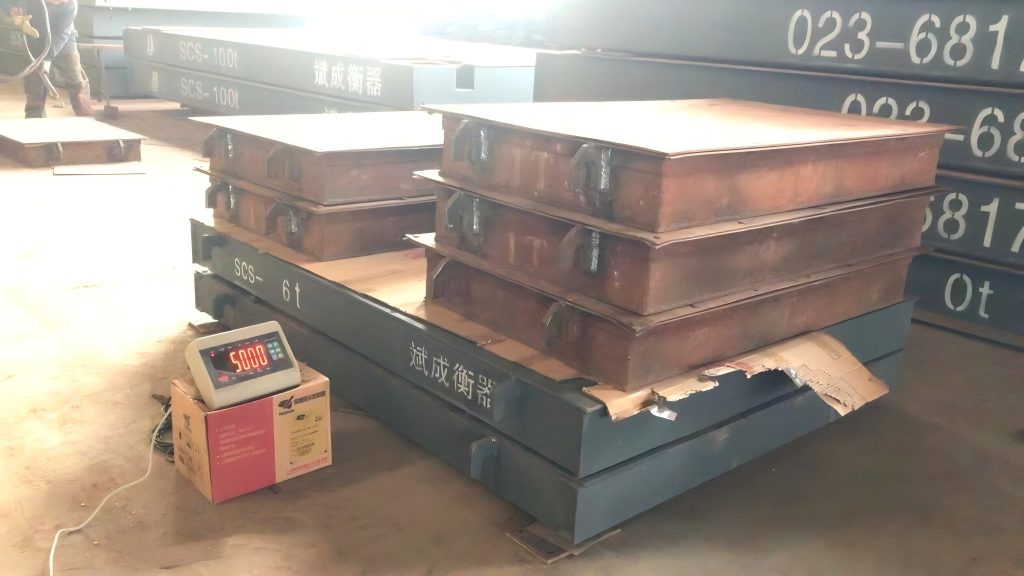Industrial Platform Scales: Types, Application, and How to Choose
Industrial platform scales are the backbone of countless industries, providing accurate and efficient weighing solutions for cargo of all shapes and sizes. From heavy pallets in warehouses to delicate components on factory floors, these robust workhorses are essential for maintaining smooth operations.
In this post, we’ll explore the diverse types and applications of industrial platform scales, and help you discover how to choose the perfect scale to meet your specific needs. Let’s dive in and unlock the potential of effective weighing!

What are Industrial Platform Scales?
Industrial platform scales are the workhorses of the weighing world, specifically designed to thrive in tough industrial environments.
Unlike their personal scale counterparts, they are built with a robust structure to handle substantial weight capacities, typically ranging from a few hundred pounds all the way up to hundreds of thousands of pounds. This allows them to tackle the heavyweights of various industries, from hefty pallets stacked high in warehouses to delicate, but crucial, components on factory floors.
These scales offer a flat and sturdy platform for effortless loading and unloading of objects, and many are designed with a low profile to further enhance ease of use. In essence, they provide a stable and dependable platform to ensure accurate weight measurement, which is vital for smooth operation across countless industries.
Main Types of Industrial Platform Scales
Industrial platform scales come in various types, each tailored to specific applications and environments within industrial settings. Understanding the different types can help businesses choose the most suitable scale for their needs.
1. Floor Scales:
Floor scales are the workhorses of industrial weighing applications. They are designed to be installed directly on the floor, providing a sturdy and stable platform for weighing heavy loads. These scales typically feature durable construction with reinforced steel or stainless steel platforms to withstand the demands of industrial environments.
Floor scales come in a range of sizes and weight capacities to accommodate various load sizes and industries, from small manufacturing facilities to large warehouses and distribution centers.
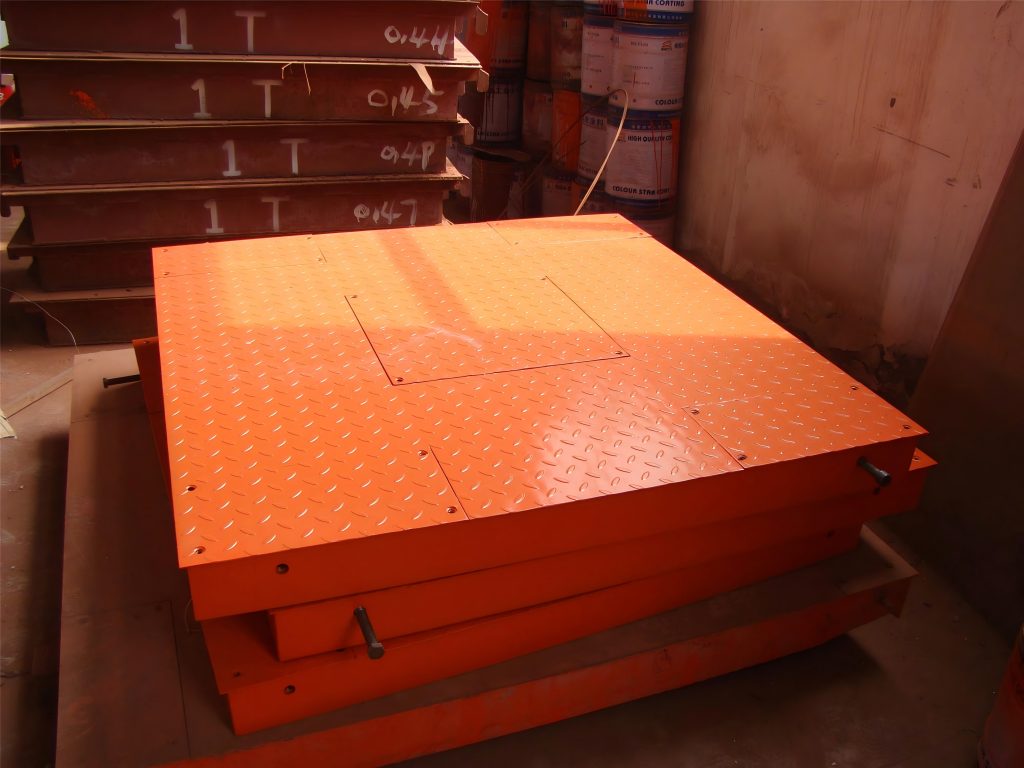
2. Pallet Scales:
Pallet scales are specifically designed for weighing standard-sized pallets commonly used in shipping and logistics. These scales feature low-profile designs with built-in ramps or access points, allowing palletized goods to be easily loaded and unloaded for weighing.
Pallet scales are essential for accurately measuring the weight of shipments before they are transported, helping to ensure compliance with weight regulations and optimize freight costs. They are commonly found in distribution centers, freight terminals, and shipping facilities.
3. Portable Scales:
Portable industrial platform scales offer flexibility and mobility for weighing tasks that require movement between different locations within a facility or even off-site. These scales are lightweight and compact, making them easy to transport and set up as needed.
They are often used in industries such as agriculture, construction, and manufacturing for tasks such as inventory management, field weighing, and material handling. Portable scales may feature integrated wheels or handles for convenient transport, as well as battery-powered operation for use in locations without access to power outlets.
4. Bench Scales:
Bench scales are smaller industrial platform scales designed for use on workbenches or tabletops. While they may not have the same weight capacities as floor or pallet scales, they offer high levels of precision and accuracy for weighing smaller loads.
Bench scales are commonly used in laboratory settings, quality control operations, and retail environments for tasks such as portioning, counting, and packaging. They often feature compact designs with easy-to-read displays and intuitive controls for efficient operation.
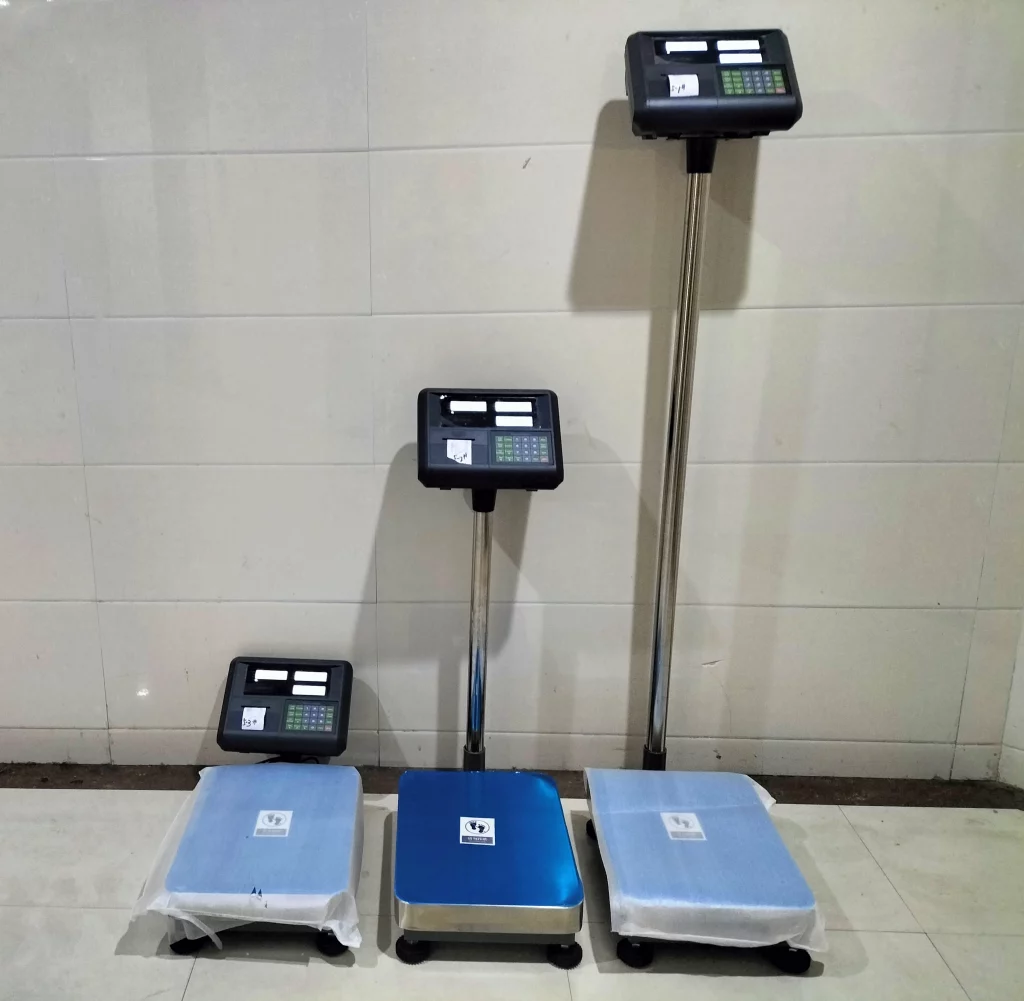
5. High-Capacity Scales:
High-capacity industrial platform scales are built to handle extremely heavy loads, such as vehicles, machinery, and bulk materials. These scales are engineered with robust construction and heavy-duty load cells to ensure accurate measurements under challenging conditions.
High-capacity scales may come in various configurations, including pit-mounted scales for weighing trucks and railcars, and crane scales for lifting and weighing oversized objects. They are commonly used in industries such as mining, construction, and transportation for tasks such as weighing vehicles, monitoring material usage, and verifying load weights.
Each type of industrial platform scale offers unique features and benefits suited to specific applications and industries. By selecting the appropriate scale type based on factors such as weight capacity, precision, mobility, and durability, businesses can optimize their weighing processes and improve efficiency in their operations.
Application of Industrial Platform Scales
The applications of industrial platform scales are vast and encompass nearly every industry that deals with measurable quantities. Here are some common uses:
- Warehousing and Shipping: For receiving inventory, managing stock levels, and ensuring accurate shipping weights. Platforms are often integrated with warehouse management software for seamless data transfer.
- Manufacturing: For weighing raw materials, components, and finished products during production processes. This helps ensure quality control, accurate production yields, and proper inventory management.
- Food and Beverage: For portion control, ingredient measurement, and ensuring compliance with food safety regulations. Platforms can be designed for easy washdown to meet strict hygiene standards.
- Chemical and Pharmaceutical: For weighing hazardous materials and ensuring accurate quantities for safe handling and production. Scales with special features can be used for hazardous materials containment.
- Waste Management: For weight-based billing and monitoring waste disposal volumes. Platforms can be designed for durability in harsh environments.
- Agriculture: For weighing crops, livestock, and other agricultural products. Platforms can be portable for use in fields or fixed for permanent weighing stations.
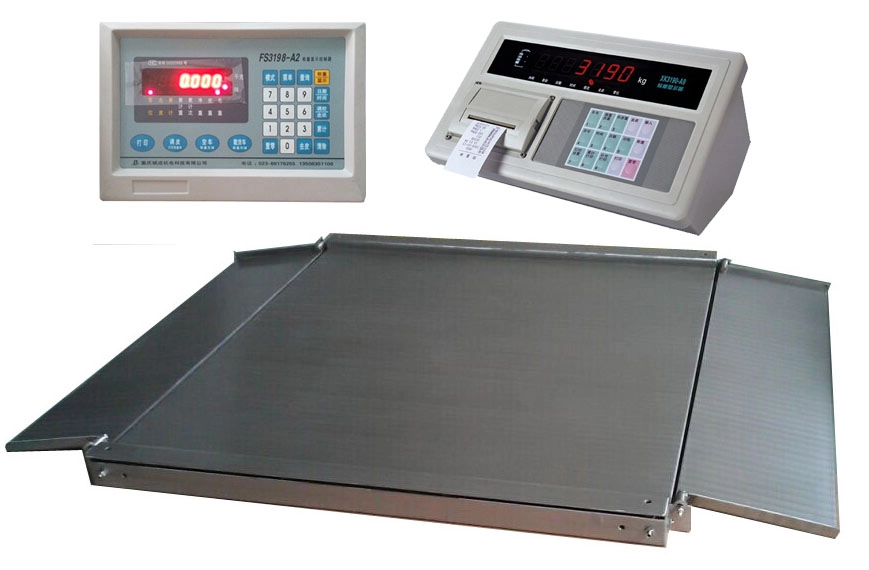
How to Choose When Need?
Selecting the right industrial platform scale is a crucial decision that can significantly impact the efficiency and accuracy of your operations. To ensure you choose the most suitable scale for your needs, it’s essential to consider several key factors in detail:
1. Weight Capacity
One of the primary considerations when choosing an industrial platform scale is its weight capacity. Assess your typical load sizes and ensure that the scale you select can handle them comfortably. It’s advisable to choose a scale with a capacity slightly higher than your maximum expected load to accommodate any fluctuations or future growth in your operations.
2. Accuracy and Precision
The accuracy and precision of the scale’s measurements are paramount, especially in industries where precise weighing is critical for quality control and compliance. Look for scales with high-quality load cells and advanced weighing technology that offers consistent and reliable results. Consider scales with certifications such as NTEP (National Type Evaluation Program) or OIML (International Organization of Legal Metrology) for assurance of accuracy and compliance with industry standards.
3. Durability and Construction
Industrial environments can be harsh, with factors such as moisture, dust, vibrations, and heavy usage potentially affecting the performance and longevity of your scale. Therefore, it’s essential to choose a scale constructed from durable materials such as stainless steel or aluminum, which can withstand these conditions. Additionally, consider features such as sealed load cells and IP (Ingress Protection) ratings to protect against environmental hazards.
4. Size and Configuration
The size and configuration of the scale’s platform should align with your specific application and available space. Measure the dimensions of the area where the scale will be installed to ensure compatibility. Consider factors such as platform size, height, and shape, as well as whether a ramp or pit installation is required for ease of loading and unloading.
5. Features and Functionality
Assess the additional features and functionalities offered by different industrial platform scales to determine which ones are essential for your operations. Common features include digital displays, touchscreen interfaces, data logging capabilities, connectivity options (such as USB, Ethernet, or wireless), and built-in software for weight management and data analysis. Choose a scale with features that enhance usability, efficiency, and integration with your existing systems.
By carefully evaluating these factors and conducting thorough research, you can confidently choose the right industrial platform scale that meets your specific requirements, enhances your operations, and contributes to the success of your business.
Conclusion
Industrial platform scales are a crucial investment for businesses that require accurate and efficient weight measurement. By understanding the different types, applications, and selection factors, you can choose the perfect scale to optimize your operations, ensure smooth workflow, and potentially improve regulatory compliance.

